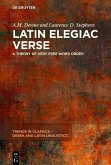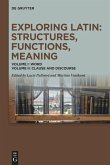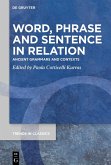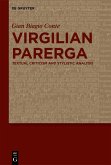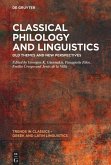A striking feature of Latin elegiac verse is its very free word order. One gets the impression that the word order is just random or that the rules of Latin syntax have been suspended for metrical convenience. Combining ample philological documentation with an overall theoretical stance, this book argues that these impressions are wrong and proceeds to analyze the syntax of Latin verse as a coherent system generated by the application of a small set of derivational rules. While these rules are independently available syntactic mechanisms like scrambling, stranding and verb raising, their systematically regular application both at the clausal and at the phrasal level is remarkable. Not only complete constituents but also partial constituents are constantly attracted towards the left edge of the phrase that contains them. The cumulative effect of this is to narrow the extent and attenuate the weight of the nuclear assertion, which reduces its processing domain and the span of its prosodic correlate. This book will be of interest both to Classicists and to linguists: it aims to solve an old problem in Classical philology, while at the same time working out a configurational syntax for a language with extreme free word order.
A.M. Devine, Stanford University, CA, USA; Laurence D. Stephens, University of North Carolina, Chapel Hill, NC, USA.
Dieser Download kann aus rechtlichen Gründen nur mit Rechnungsadresse in A, B, BG, CY, CZ, D, DK, EW, E, FIN, F, GR, HR, H, IRL, I, LT, L, LR, M, NL, PL, P, R, S, SLO, SK ausgeliefert werden.



